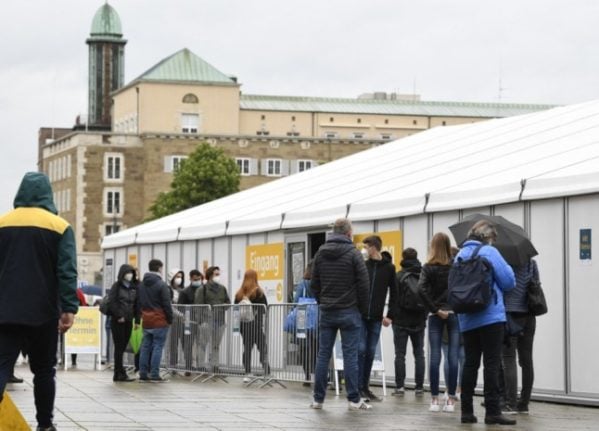Prosecutors raided a company in the northwestern city of Bochum on Friday, according to the Süddeutsche Zeitung newspaper, while farther north in
Lübeck, prosecutors have opened a fraud probe, the WirtschaftsWoche weekly said.
In Cologne, authorities carried out a surprise control of a testing centre, and the city of Munster has revoked the licence of a company that operates around 50 testing centres.
In an effort to boost Covid-19 testing, the German government made testing free several weeks ago, reimbursing companies up to 18 euros ($22) for each test conducted.
But according to a joint investigation by several media companies, the testing centres do not have to furnish any documents to prove how many people they’ve tested when filing for government compensation and several have been inflating the figures.
“They just have to send the number of tests (carried out), without any proof, and they are wired the money soon after,” according to a joint investigation by NDR and WDR public television and Süddeutsche Zeitung.
READ ALSO: Germany’s free Covid-19 testing system ‘opens up potential for fraud’
READ ALSO: EXPLAINED: What you need to know about rapid Covid testing around Germany
As part of the effort, journalists counted the number of people who had come into the testing centres and then compared these numbers to what the establishments submitted to the government to get reimbursed.
According to the investigation, one centre declared 422 tests, when only around 100 people had come in. Another filed for reimbursement of 1,743 tests done in a single day, when only 550 people had come in.
The number of places offering free Covid-19 tests have mushroomed since the government introduced the free scheme — in the North Rhine-Westphalia region there are currently nearly 8,000 and the capital Berlin has at least 1,200.



 Please whitelist us to continue reading.
Please whitelist us to continue reading.
Member comments